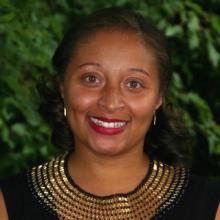
A Lesson from the Global Pandemic: The Permission towards Self Care
When the pandemic hit, everything changed overnight. We were in a state of crisis.
Crisis has a way of exposing our frailty. Our vulnerability rises to the surface without our permission.
Lack of control, uncertainty about the future, and anxiety about the unknown work together like a torrent, forcing us to let go of certitude. We know in part. That’s how it’s always been. But crisis beckons our confession of not knowing. Crisis humbles us, allowing us to see life from the vantage point of the powerless. Crisis reveals what busyness can hide. Crisis can be a pedagogical tool.
What lessons have I gained from the pandemic crisis that will stay with me when vaccines and face masks are no longer a point of division? This vignette helps me explore this lesson.
Vignette
I opened an email from one of my students who said she needed to speak with me in person. Despite the growing number of safety protocols on campus, I agreed to meet with her. When she arrived, she sat in my office chair. Her shaky leg indicated her restlessness. “How can I help you?” I asked.
She could no longer remain on campus. Despair had stolen her will to complete work, hang with friends, and ultimately to continue. Being home with family, she shared, seemed to be her best option. At home, she would be surrounded by those who knew how to love her well as she navigated depression.
After sharing her concerns, she looked me in my eyes, and invited me to be honest with her about what I thought. Now, it was my chance to love her well as her professor.
I wrestled with my thoughts: “Couldn’t she just figure it out?” “Is it really that bad?” “Is this just an excuse to go home?” At the core was my own selfishness—I wasn’t ready to lose one of my top students.
Despite my inner wrestling, loving her well meant letting her get the help she needed. She didn’t really need my blessing, although she wanted it.
“Give yourself permission to take care of yourself. Do what you need to do to be whole,” I told her.
My insistence that self-care was nonnegotiable offered some sort of release.
That was my last time speaking with her in person.
She disenrolled from my university.
Her sense of urgency to preserve herself was quite admirable and brave.
As we continue to remain in the pandemic crisis, these narratives show up in my office, emails, and coffee conversations repeatedly with many students who are navigating similar concerns. Depression, stress, anxiety, insomnia, and fear of returning home describe a large number of students. Counseling services are so full that they find it a challenge to adequately accommodate our students.
“Give yourself permission to take care of yourself. Do what you need to do to be whole,” I told her.
That brief response embodies a lesson I’ve been trying to learn ever since the pandemic started. That lesson is on self-care.
The crisis of self -care did not start because of the pandemic; rather, the pandemic simply exposed what has always been burgeoning beneath the surface, exacerbating it so it can no longer be hidden.
Lesson 1: We are not fragmented.
All of me in one space. That’s what the pandemic did. Fragmentation is only an illusion. I am guilty of trying to live under that illusion.
During COVID-19, I could no longer live a fragmented life. I could not put motherhood on a shelf until I finished teaching; my children were with me. The bedroom became a makeshift office as I tried to supervise my children’s e-learning while also teaching a Zoom class. My children offered no apology for competing for my care.
Lesson 2: Wholeness is the new cool.
I don’t want to only pursue wholeness for the sake of my own sanity and peace. But, I must do it because my students need to know that wholeness is a worthy pursuit.
Lesson 3: Self-care is the new norm.
Self-care recognizes that we are not fragmented.
I’m learning how to create space for myself.
Self-care requires intentionality.
It requires permission-giving.
It requires discarding the guilt.
Self-care does not equal selfishness.
It requires exorcising the lie that I should have superhuman strength.
Our students do not possess super strength; nor do we.
“Give yourself permission to take care of yourself. Do what you need to do to be whole.”
My own hypocrisy is appalling.
If actions speak louder than words, what would it look like for my assignments and classroom space to reflect self-care as a priority for my students beyond COVID? How do we model self-care without crossing boundaries?
Possibilities include:
- Normalizing a mental health day as an excused absence.
- A Prioritize Yourself Day, where I invite students to engage intentional practices of self-care during class time.
- Stretching before or after a heavy topic or exam.
- Inviting gratitude into the classroom.
- Encouraging students to reach out to other students when they notice someone is missing.
- Celebrating hard work, even if it is not an A.
- Creating a culture where students know that failure and disappointment is expected as part of the learning process.
How do we make self-care the norm for both teachers and students post-pandemic?
Leave a Reply